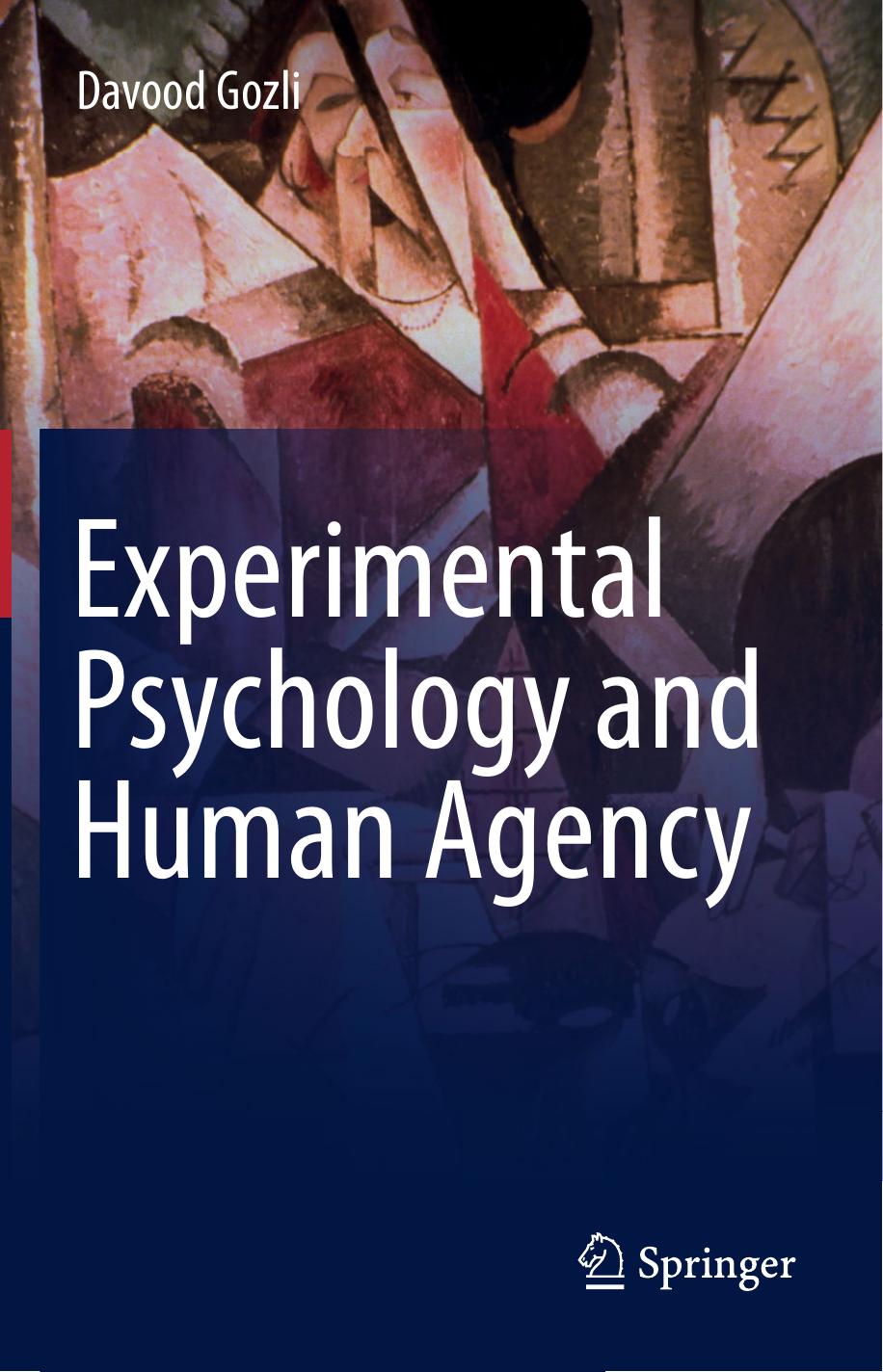Experimental Psychology and Human Agency by Davood Gozli

Author:Davood Gozli
Language: eng
Format: epub, pdf
ISBN: 9783030204228
Publisher: Springer International Publishing
5.4 Goals Without Actors
In their article, “What is a task? An ideomotor perspective”, Künzell et al. (2017) distinguished tasks from goals and actions. Following the ideomotor approach (Hommel, 2013; Shin, Proctor, & Capaldi, 2010), they defined goals as desired future states, dividing them into relatively concrete and relatively abstract goals. Actions , they wrote, are movements that attempt to fulfill a concrete goal. In writing an email, for instance, the visual appearance of words and sentences on the screen serve as concrete goals. The abstract goal of “writing an email” limits the current concrete goals (Powers, 1998). Similarly, in the task-switching paradigm (Figs. 5.5 and 5.6), responding to stimulus shape is a relatively abstract goal, whereas responding to a diamond-shaped stimulus is a relatively concrete goal. Finally, finger movements that push down response keys are actions that fulfill the concrete goals.
Within the framework I have outlined, Künzell et al.’s (2017) “actions”, “concrete goals”, and “abstract goals” roughly correspond to “subordinate goals”, “basic-level goals”, and “superordinate goals”. I do not think they would find my terminology problematic because it acknowledges the hierarchical nature of goals. They also treat “concrete” and “abstract” as relative terms, noting that more than two levels of goal can be identified in a given activity. Moreover, by adopting the ideomotor approach, the authors accepted that there is no clear dividing line between goals and actions (Hommel, 1997; Hommel et al., 2001). By describing all levels of the hierarchy with respect to goals, we acknowledge that they all involve anticipation. The tactile sensation of fingers against the keyboard, the appearance of words on the screen, and knowing that one has sent an email can all be anticipated. All three can be pursued at the same time, as parts of the same task (Powers, 1998). A superordinate (abstract) goal does not disappear after shaping the current basic-level (concrete) goals and actions.
What about tasks? Intriguingly, Künzell et al. defined tasks as “depersonalized goals”. The difference between a task and a goal, they wrote, “is that a goal is personal, meaning that it is bound to a specific person striving for this goal” (Künzell et al., 2017, p. 6). In contrast to a goal, the authors continued, “a task is not bound to a specific person, because it describes what has to be done by any participant” (ibid). If someone adopts a task, then “the depersonalized task becomes a personal goal of that specific person” (ibid).
Are goals so entangled with particular people that, in order to separate the two, we need the help of an additional concept? In ordinary language, goals are not tied to particular persons, which is why we can talk about a goal without talking about who pursues the goal. When we read Wittgenstein (1953, p. 42), for instance, who wrote, “what is inexact attains its goal less perfectly than what is more exact”, we are not thinking about the goal of a particular person, although the statement is meaningful to us. When we talk about the goal of being accurate, being objective, we are not talking about the goal of a particular person.
Download
Experimental Psychology and Human Agency by Davood Gozli.pdf
This site does not store any files on its server. We only index and link to content provided by other sites. Please contact the content providers to delete copyright contents if any and email us, we'll remove relevant links or contents immediately.
Rewire Your Anxious Brain by Catherine M. Pittman(18630)
Talking to Strangers by Malcolm Gladwell(13339)
The Art of Thinking Clearly by Rolf Dobelli(10407)
Mindhunter: Inside the FBI's Elite Serial Crime Unit by John E. Douglas & Mark Olshaker(9310)
Becoming Supernatural by Dr. Joe Dispenza(8194)
Change Your Questions, Change Your Life by Marilee Adams(7731)
Nudge - Improving Decisions about Health, Wealth, and Happiness by Thaler Sunstein(7689)
The Road Less Traveled by M. Scott Peck(7581)
The Lost Art of Listening by Michael P. Nichols(7485)
Mastermind: How to Think Like Sherlock Holmes by Maria Konnikova(7312)
Enlightenment Now: The Case for Reason, Science, Humanism, and Progress by Steven Pinker(7303)
Win Bigly by Scott Adams(7181)
The Way of Zen by Alan W. Watts(6589)
Daring Greatly by Brene Brown(6500)
Big Magic: Creative Living Beyond Fear by Elizabeth Gilbert(5739)
Grit by Angela Duckworth(5592)
Ego Is the Enemy by Ryan Holiday(5406)
Men In Love by Nancy Friday(5225)
The Laws of Human Nature by Robert Greene(5154)
